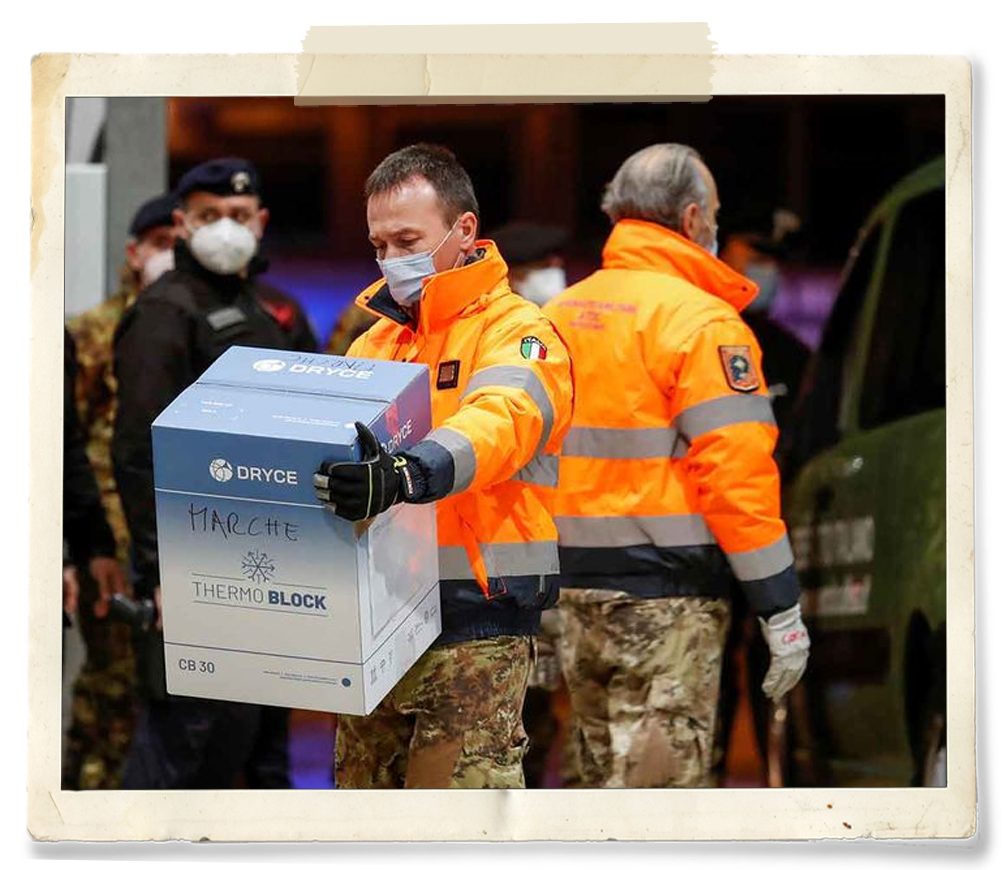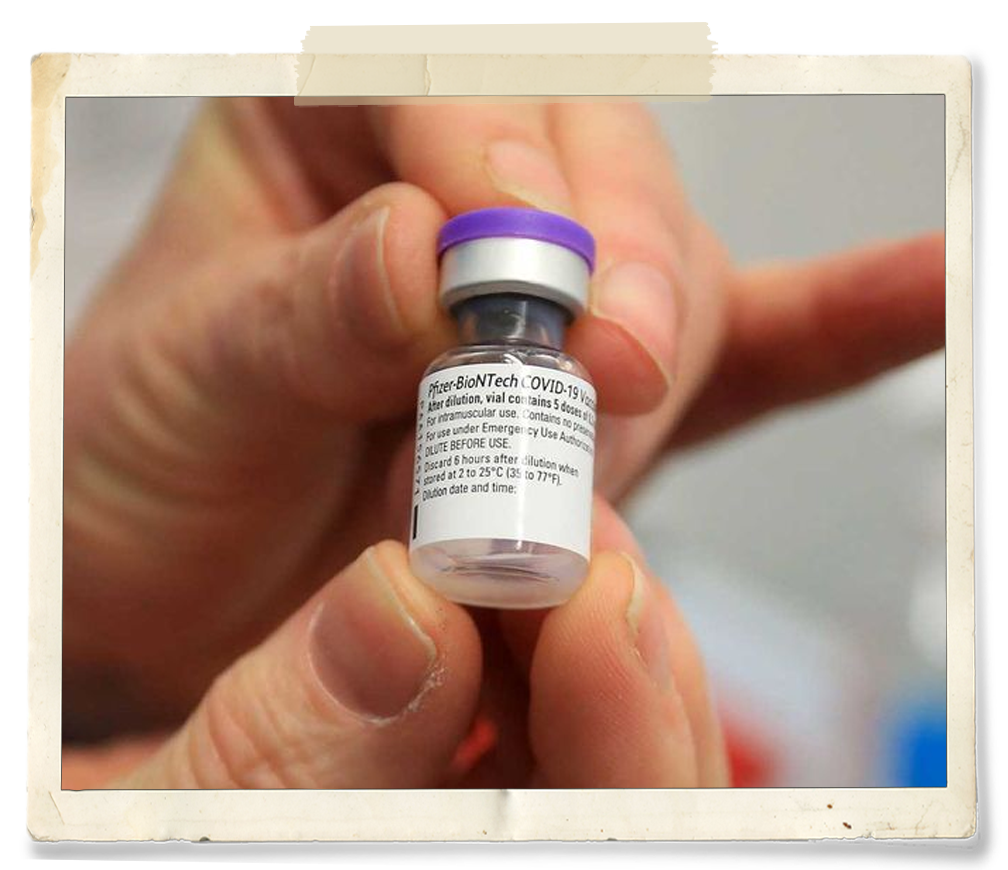Hope amid lingering agony and despair
Vaccines and vaccinations have fuelled optimism for faster economic recovery around the world. But it would be premature to put a timeframe for a rebound in growth, especially since a new virus strain has surfaced

Reuters
A member of the military carries a box containing the Pfizer-BioNTech coronavirus disease (COVID-19) vaccine to hangar at Pratica di Mare Air Base near Rome, Italy, on December 26, 2020.
The wait for an effective vaccine against COVID-19 had been agonising. The world oscillated between hope and despair for nearly a year, and now we have several vaccines. At least four of them have been authorised for emergency use.
The vaccine discoveries have given rise to hopes of a faster recovery for the global economy in 2021-22.

AFP
A vial of the Pfizer-BioNTech Covid-19 vaccine, in Haxby, northern England on December 22, 2020.
Today, the world is more confident than in June in its ability to arrest the spread of the virus. A second wave and the discovery of a new mutated strain that spread faster has dampened some of the vaccine discovery's euphoria. Global growth expectations have suddenly taken a dip.
The weeks ahead will be crucial in finding the vaccines' efficacy against the new variant, and that will decide how soon the economies will recover. Science has given the world hope, and that should lead to an upward growth trajectory.